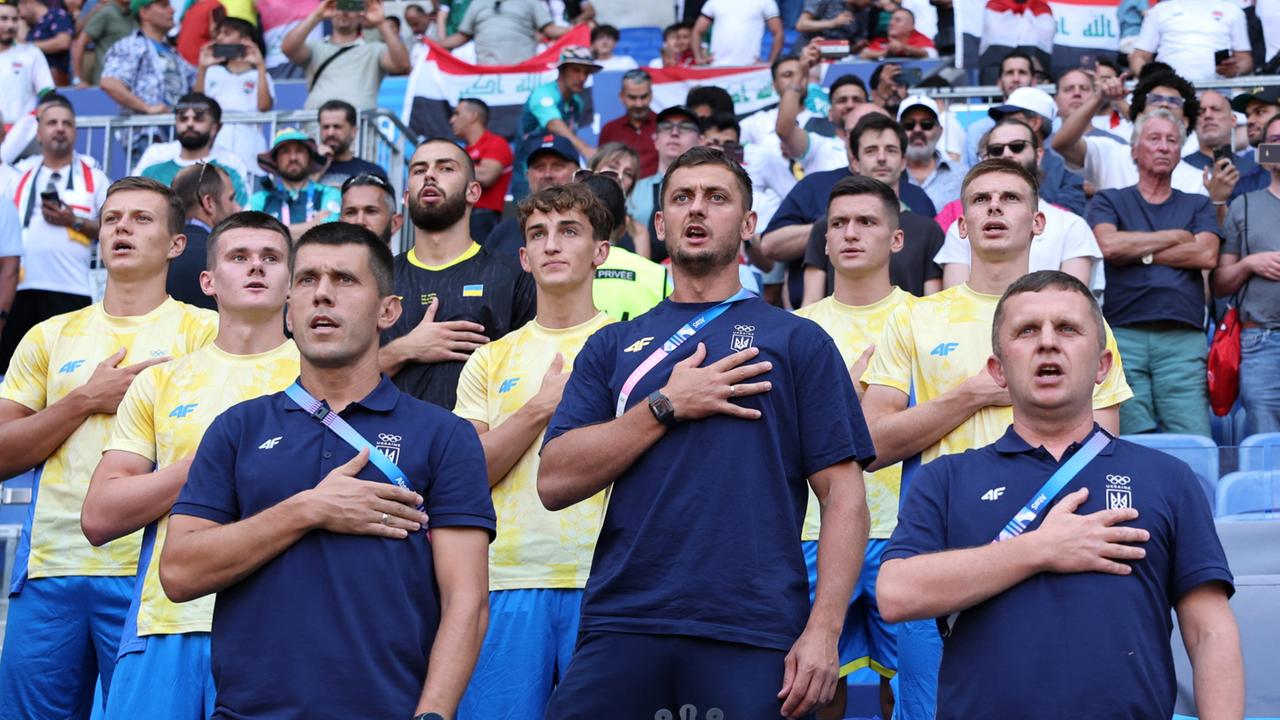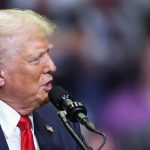Never before have so few Ukrainians taken part in the Olympics as in Paris. They train while training partners are killed and sports venues are bombed – and compete against Russians at the Games.
It is quiet in the once very popular gym in the city of Khmelnytskyi. Two pensioners, former trainers, are playing checkers, surrounded by bars, exercise mats and empty benches. Weightlifter Yuri Chikida points to faded photos on the wall and trophies in the corner – a reminder of the many top athletes from the region who trained here.
The time before the war was great, sport was very important, he remembers. But after the major attack, the studio immediately emptied: “Everyone was in a panic, nobody knew what to do or where to go.”
Chikida also trained Olympic athlete and heavyweight athlete Oleksandr Pyeljeschenko. The two men met and became friends during competitions together. When Russia attacked Ukraine, 28-year-old Pyeljeschenko volunteered for military service.
Nevertheless, they both planned to go to the Olympic Games together. “He dreamed about it and he had talent. He would have certainly achieved something great. Unfortunately, he was killed in the war,” says Chikida. Late at night he received a call – from friends from Pyeljeschenko's unit. A shock.
According to the Ministry of Sports, more than 450 Ukrainian athletes and coaches have now been killed at the front or as civilians. Only 140 athletes are competing for medals in Paris – fewer than ever before.
Yuri Chikida trained the weightlifter Oleksandr Pjeljeschenko, who died in the war.
Destroyed sports facilities
The wrestler and Olympic champion Shan Beleniuk is also there. Since 2019 he has been a member of parliament for President Volodymyr Zelensky's Sluha Narodu party. A training session is scheduled at the sports center in Koncha Saspa, a suburb of Kyiv: first jogging, then pull-ups. Final preparations for Paris. Although Beleniuk actually wanted to stop playing professional sport: “The war was one of the most important reasons why I wanted to continue my sports career,” he says now.
Shortly after the attack, the wrestler traveled to the USA and trained abroad, like many top athletes from Ukraine. Many are still unable to return to stadiums, swimming pools or running tracks. More than 300 sports facilities were damaged or destroyed in the war. “To be honest, I can't remember life before the war,” says Beleniuk. He has gotten used to the new reality: often without electricity, without heating in winter. With rocket attacks.
Message from the athletes
Some have lost family and loved ones, others good friends and acquaintances. That is why Beleniuk sees this year's Olympic Games primarily as a political platform. Personal ambitions and careers are taking a back seat, he says. These games are different from all that Ukraine has experienced before. “We have much more responsibility, we are a mouthpiece, we will tell stories,” says Beleniuk.
Stories of how Ukrainian athletes prepare under these conditions, how their families die, how they continue to train while Russia occupies parts of the country. “This will touch people even more than if any politicians speak,” the wrestler believes.
Shan Beleniuk is a professional athlete and member of parliament. For him, the Olympic Games are primarily a political platform.
Difficult conditions in Paris
And there is something else that makes this year's Olympic Games special for Ukrainian teams – and also particularly stressful: In Paris, they will meet athletes from Russia and Belarus, among others. Athletes who did not actively support the war are allowed to participate under a neutral flag. What if they meet Ukrainians? The National Olympic Committee of Ukraine has published the following recommendations for action: Avoid contact and keep your distance in the event of a joint award ceremony, no joint photos or videos.
The participation of the athletes from Russia has caused heated discussions in Ukraine. Coach Chikida also believes that sport and politics have always been closely intertwined – it is difficult to say where so-called neutrality even begins.
He himself was a member of the SBU, the domestic secret service. This is often the case with Olympic sports. “It will be no different in Russia, where sport is also supported by the military,” he says. “And how can a participant from Ukraine stand next to an athlete from Russia – the country that bombs our sports halls with rockets?”
A neutral flag is not enough, says wrestler Beleniuk, who is sponsored by the Ukrainian armed forces. Much more is needed for joint sport: “Only if Russia leaves our country and pays reparations. If Russians apologize for supporting Putin's crimes.”
In Paris, the 140 athletes from Ukraine will have to compete in perhaps their most difficult competition: they have come from the bloody everyday life of war and their thoughts are with the killed athletes whose sporting dreams were destroyed.
Mariia Fedorova, WDR, tagesschau, July 25, 2024 7:15 p.m




